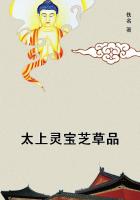THE IDEA OF A CHURCH
1. THE WORLD DAWN
As yet those who may be counted as belonging definitely to the new religion are few and scattered and unconfessed, their realisations are still uncertain and incomplete. But that is no augury for the continuance of this state of affairs even for the next few decades.
There are many signs that the revival is coming very swiftly, it may be coming as swiftly as the morning comes after a tropical night.
It may seem at present as though nothing very much were happening, except for the fact that the old familiar constellations of theology have become a little pallid and lost something of their multitude of points. But nothing fades of itself. The deep stillness of the late night is broken by a stirring, and the morning star of creedless faith, the last and brightest of the stars, the star that owes its light to the coming sun is in the sky.
There is a stirring and a movement. There is a stir, like the stir before a breeze. Men are beginning to speak of religion without the bluster of the Christian formulae; they have begun to speak of God without any reference to Omnipresence, Omniscience, Omnipotence.
The Deists and Theists of an older generation, be it noted, never did that. Their "Supreme Being" repudiated nothing. He was merely the whittled stump of the Trinity. It is in the last few decades that the western mind has slipped loose from this absolutist conception of God that has dominated the intelligence of Christendom at least, for many centuries. Almost unconsciously the new thought is taking a course that will lead it far away from the moorings of Omnipotence. It is like a ship that has slipped its anchors and drifts, still sleeping, under the pale and vanishing stars, out to the open sea. . . .
2. CONVERGENT RELIGIOUS MOVEMENTS
In quite a little while the whole world may be alive with this renascent faith.
For emancipation from the Trinitarian formularies and from a belief in an infinite God means not merely a great revivification of minds trained under the decadence of orthodox Christianity, minds which have hitherto been hopelessly embarrassed by the choice between pseudo-Christian religion or denial, but also it opens the way towards the completest understanding and sympathy and participation with the kindred movements for release and for an intensification of the religious life, that are going on outside the sphere of the Christian tradition and influence altogether. Allusion has already been made to the sympathetic devotional poetry of Rabindranath Tagore; he stands for a movement in Brahminism parallel with and assimilable to the worship of the true God of mankind.
It is too often supposed that the religious tendency of the East is entirely towards other-worldness, to a treatment of this life as an evil entanglement and of death as a release and a blessing. It is too easily assumed that Eastern teaching is wholly concerned with renunciation, not merely of self but of being, with the escape from all effort of any sort into an exalted vacuity. This is indeed neither the spirit of China nor of Islam nor of the every-day life of any people in the world. It is not the spirit of the Sikh nor of these newer developments of Hindu thought. It has never been the spirit of Japan. To-day less than ever does Asia seem disposed to give up life and the effort of life. Just as readily as Europeans, do the Asiatics reach out their arms to that fuller life we can live, that greater intensity of existence, to which we can attain by escaping from ourselves. All mankind is seeking God. There is not a nation nor a city in the globe where men are not being urged at this moment by the spirit of God in them towards the discovery of God. This is not an age of despair but an age of hope in Asia as in all the world besides.
Islam is undergoing a process of revision closely parallel to that which ransacks Christianity. Tradition and mediaeval doctrines are being thrust aside in a similar way. There is much probing into the spirit and intention of the Founder. The time is almost ripe for a heart-searching Dialogue of the Dead, "How we settled our religions for ever and ever," between, let us say, Eusebius of Caesarea and one of Nizam-al-Mulk's tame theologians. They would be drawn together by the same tribulations; they would be in the closest sympathy against the temerity of the moderns; they would have a common courtliness. The Quran is but little read by Europeans; it is ignorantly supposed to contain many things that it does not contain; there is much confusion in people's minds between its text and the ancient Semitic traditions and usages retained by its followers; in places it may seem formless and barbaric; but what it has chiefly to tell of is the leadership of one individualised militant God who claims the rule of the whole world, who favours neither rank nor race, who would lead men to righteousness. It is much more free from sacramentalism, from vestiges of the ancient blood sacrifice, and its associated sacerdotalism, than Christianity. The religion that will presently sway mankind can be reached more easily from that starting-point than from the confused mysteries of Trinitarian theology. Islam was never saddled with a creed. With the very name "Islam" (submission to God) there is no quarrel for those who hold the new faith. . . .
All the world over there is this stirring in the dry bones of the old beliefs. There is scarcely a religion that has not its Bahaism, its Modernists, its Brahmo Somaj, its "religion without theology,"its attempts to escape from old forms and hampering associations to that living and world-wide spiritual reality upon which the human mind almost instinctively insists. . . .
It is the same God we all seek; he becomes more and more plainly the same God.















